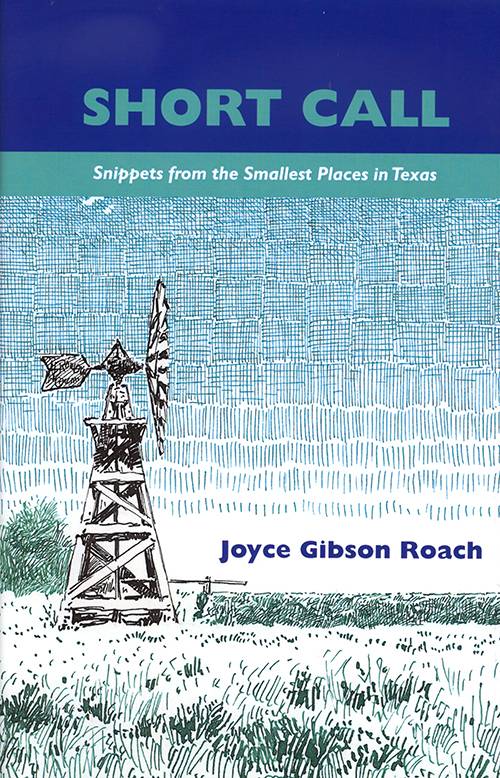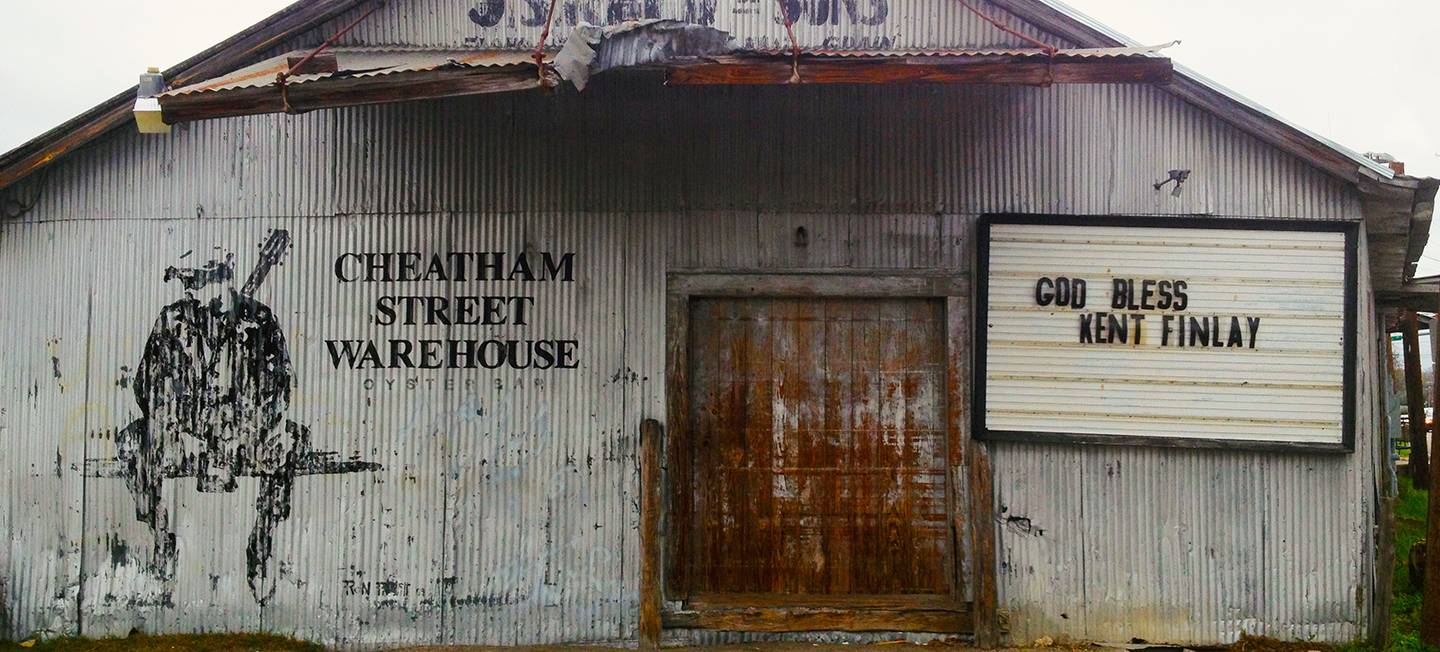Short-Sighted

Short Call: Snippets from the Smallest Places in Texas
by Joyce Gibson Roach
Denton: University of North Texas Press, 2014
154 pp. $19.95 cloth
Reviewed by
Christian Wallace
Short Call: Snippets from the Smallest Places in Texas aims to give readers a glimpse of small-town Texas of days gone by. Written by Joyce Gibson Roach, a former president of the Texas Folklore Society, Short Call is a series of vignettes pieced together from her own personal history and bits of lore collected from others. The majority of the book centers on characters living in Turtle, Texas, the fictional county seat of Middle County, situated somewhere west of Fort Worth. Incidentally, Ms. Roach hails from Jacksboro, a tiny burg also located just west of Cow Town. Besides analogous hometowns, the book’s fictional narrator and the author share the same first name as well as several other biographical parallels.
This slim volume covers a slew of topics including Texans’ creative use of the English language, ornery Texas weather, six-man football, outhouses, and go-getting Texan women. These subjects are presented in mostly humorous anecdotes detailing various shenanigans of the simple but resourceful people of Turtle. Roach paints the town with a knowing, rose-colored brush. She clearly has a deep admiration and love for the men and especially the women who appear in the pages of her book.
Most of the “women folk” go by two names like Mabel Claire or Gertie Lou. In fact, Roach dedicates an entire snippet (as we’ll call the chapters) to the array of names that have fallen from favor but were once as abundant as horned toads on the prairie: Myrtle, Ethel, Rosebud, and others. Most of the women’s actions are confined to the kitchen. As such, kitchens play an important role in this collection. Roach often inserts recipes directly into the narrative, stylizing lists of ingredients into a form of culinary monologue.
The writing of this book wobbles between surefooted prose and an awkward limp. An example of Roach at her best is a passage describing “high-toned women” entering church:
“Their entrance reminded me of great ships at sea as they turned their bows into the wind. As they sailed relentlessly toward the front, we felt the platform tremble and the planks of the benches moan as their well-staved masts groaned and creaked under the rigging of their undergarments.”
On the opposite end of the spectrum, Roach’s language is often marred by cliché and weak editing. One example of a weaker line is when Tandy, a sick mule who must be medicated through a funnel inserted into its rectum, is described as “bloated and suffering terrible.” A couple sentences later, Tandy is depicted as “bloated, suffering awful bad.” This sample of text is more indicative of how the majority of the book reads.
One of the more confusing aspects of the book is the timeframe. Roach’s snippets range from discussion of early settlers and their introduction of wild hogs to mentioning a scene from Jurassic Park. Examples of these mixed references and time-hopping between snippets are the norm throughout the text. It’s hard to understand the history and lore of a place when you’re having a difficult time pinpointing what decade the action is taking place.
Readers looking for a wholesome read about affectionate memories regarding ideal small towns will find great pleasure in Ms. Roach’s collection. In fact, blank pages are inserted at the end of some snippets for the reader to record his or her own recollections of bygone days. The work is geared for other veterans of small-town life who revel in life’s simple pleasures such as singing hymns and silly puns. However, the world painted by the author is notably absent of the social issues and complex community dynamics that would have colored any Texas town over the last eighty years. These issues, of course, are not essential to the folklore of tiny communities, but they are an imperative aspect of their history.
This is my biggest complaint with Short Call. Too often the state’s past is repeated with cotton-candy sweetness and bubblegum prose. I feel this collection simplifies and sentimentalizes the past and refuses to acknowledge any injustices. Roach specifically calls the Great Depression, a “sweet memory from childhood.” This may be so for the author, but was the entire town of Turtle/Jacksboro having a similarly cheery experience, or is this the narrow vision of a middle-class white girl who embraced the apron as “the one garment common to all women,” while being raised in the churches and kitchens of other Anglos?
The only glimpse we get of issues outside of the goings-on of the Caucasian, Christian people of Turtle is during Joyce’s recollection of a trip to Fort Worth. She says, “I slurped gulps of water from the fountain marked white. There was no choice to make in Turtle, Texas; we didn’t have—fountains.” This sentence stands out to me more than any other. What is Roach implying? The em dash feels weighted with meaning. I’m uncertain if it’s a subtle recognition of other’s prejudice or something more pernicious.
This book will no doubt offer an entertaining read for those who have similar memories of growing up in “simpler” times, but if you wish to truly gain insight into the small towns of Texas, you should pack up the car and go explore them first hand.
Christian Wallace is a graduate student at Texas State University. His writing has been published in American and Ireland.
